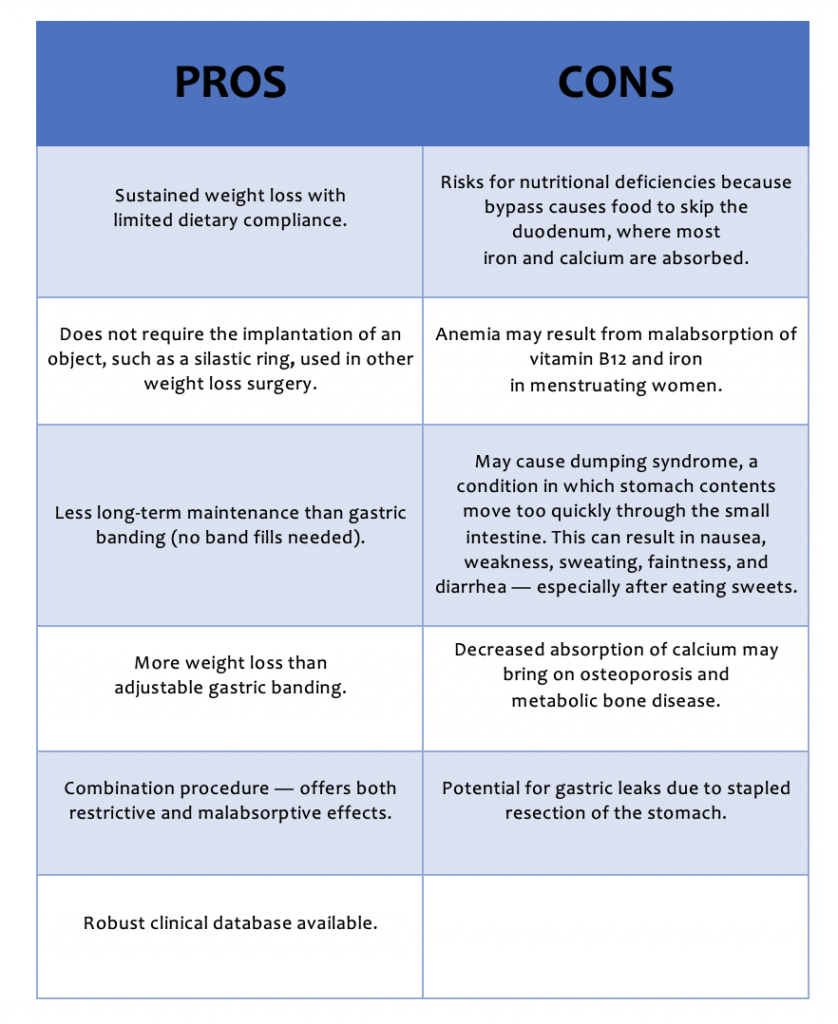Latest News
Speare Memorial Hospital Welcomes Patrick Cate to Board of Directors
Dr. Theodore Capron Joins Speare Memorial Hospital Board of Directors
Breastfeeding Support Group Announces New Location and Time Beginning January 2026
Gastric bypass is considered the gold standard for significant, long-term weight loss in clinically obese patients. It changes how much you can eat and how you absorb food.
During the surgery, your stomach size is reduced, and part of your small intestine is skipped over, or “bypassed”. This changes how you digest. Food will now move past most of your stomach and the first part of your small intestine. Your smaller stomach will only allow you to eat small meals and since most calories and nutrients are absorbed in the small intestines, you will absorb less of the food you eat. These changes let your body use excess fat for energy, resulting in weight loss. Gastric bypass can lead to hormonal changes that lessen your appetite, which will assist you in keeping off the weight.
Surgical steps taken during gastric bypass:
- Your stomach is reduced to a pouch, the size of your thumb, using a surgical stapler.
- The small intestine is divided, using a surgical stapler, two feet from the stomach.
- One end of the small intestine is raised and attached to the stomach.
- The other end of the small intestine, still connected to the non-functional stomach remnant, is reconnected to the intestinal tract.
- A plastic drainage tube may be placed here to detect a leak and help if a leak occurs.
- Internal incisions are closed with absorbable stitches that do not need to be removed manually, while external incisions are closed with stiches, steri-strips, or staples.
Studies have shown that gastric bypass surgery is not just safe, it is also the only effective approach for significant long-term weight loss for most patients.
Pros & Cons of Gastric Bypass


